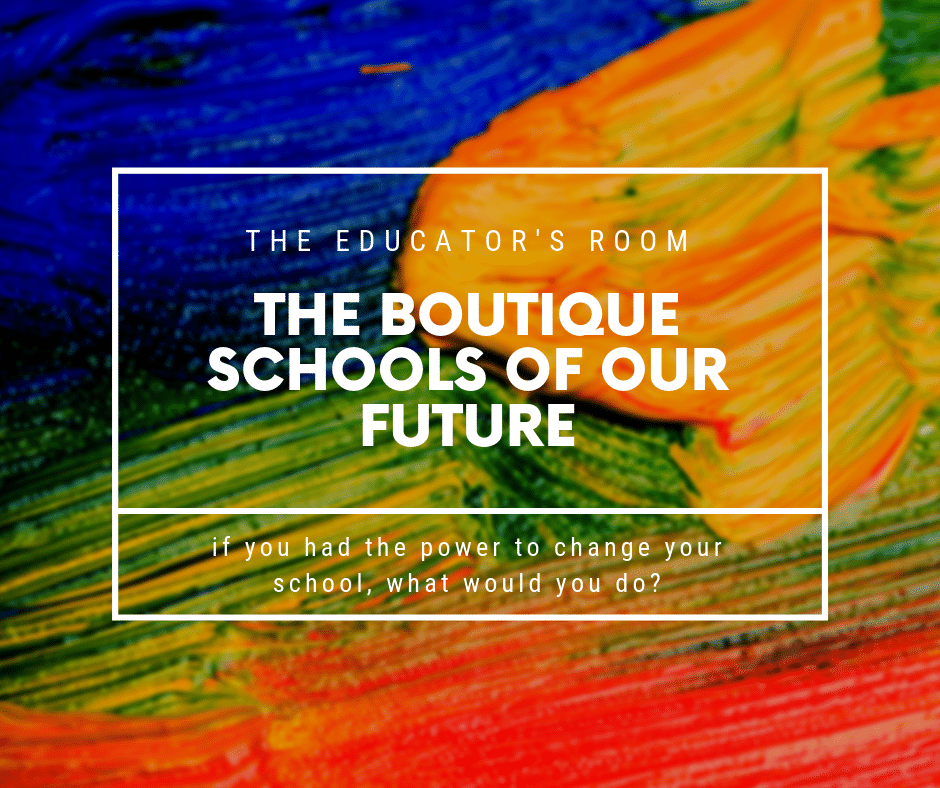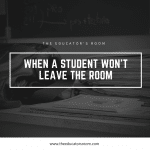This past week I spent a few days at Northeastern University for a doctoral residency in the program I’m currently studying under. Part of this experience was spending a day interacting with the NExT community: A group of schools dedicated to Innovation and experiential learning as part of their mission. I learned about programs such as Iowa BIG, BVCaps, and One Stone, who are all doing amazingly innovative things in their specific contexts. While each of the schools represents something unique and special in education, what was more clear was that their work has the potential to be the future of what all American schools look like.
The focus of my doctoral work is around the idea that American schools have largely stayed the same for the past 250+ years. Ever since my first-day student teaching in a Big Picture school in Detroit I’ve been on the hunt for innovative approaches to learning that engage all students and prophecies that capitalize on their strengths, connect them to communities, and are authentic in what they ask students to do. This is easier said, than it is to find. I was spoiled by my Big Picture experience and didn’t even realize what I had stumbled on that early in my career.
And I have continued to work in schools over the past decade, I’ve come to realize that most School experiences are only marginally preparing a majority of their students for the future that awaits them. This is particularly true in low-income, majority-minority communities across the country. If this is true, then what does the future American School look like, if it’s not adequately serving these student populations right now?
I see part of this answer is being represented by what I call Boutique schools: Small-scale, local reforms taking hold in communities that are tired of the old “school as usual” experience for their students. These communities see education is needed to change and are willing to forego their historically institutionalized experiences for what they know to be better serving their young people.
[bctt tweet=”These communities see education is needed to change and are willing to forego their historically institutionalized experiences for what they know to be better serving their young people.” username=””]
Policy Calling For Local Movements
When the No Child Left Behind Act (NCLB) was passed in 2001, it represented a bipartisan effort to reform education from the top down. As countless teachers and administrators know, NCLB mandated things like hyper scripted curriculum, high-stakes testing, and intense accountability measures. All of these things were facilitated directly from the Department of Education down to States, and then to their districts.
With the passage of the Every Student Succeeds Act (ESSA) in 2015, much of this has changed. ESSA puts the onus of school control back in the hands of states and local districts. It encourages research-driven practices and innovation, while also encouraging States to address the needs of students who are in the most challenging situations. Certainly, ESSA is not perfect, but it opens quite a few doors for schools to address the needs of their students as they see fit.
Needless to say, this is a dramatic change from the policy landscape present under NCLB, and presents a host of opportunities for localized, accountable, small-scale efforts such as those driven by boutique schools.
Boutique Schools Are More Than Just One Off Ventures
Certainly, the individual schools I mentioned above are part of very localized efforts to change education. But singular schools are not the only entities entering the boutique school movement. The Mapleton School District, outside of Denver, and the Leadership Schools Network, in Albuquerque, have also constructed clusters of schools that offer students opportunities far beyond what a majority of Americans would consider the typical high school experience.
In addition, BVCaps is working to expand its Caps network nationwide with more than 100 participating districts and schools. There are Caps movements in Dallas, Little Rock, Omaha, and the list goes on. Efforts like Big Picture have opened hundreds of schools nationwide, and the Teacher-Powered School network certifies that more than 100 boutique school efforts are committed to their values.
Needless to say, while boutique schools themselves are small, their collective efforts and philosophies are growing.
The Benefits of Boutique Schools
While I could write extensively about the benefits of boutique schools, I want to point out three distinct, and incredibly important, benefits that I see fitting into the future of American education.
First is personalization. Each of these small schools presents opportunities for students that are driven by personalized, connected, authentic learning. With increasingly diverse and unique learners, it is essential that schools reach these groups, and boutique schools offer just this type of opportunity: To connect to individual learners and help them figure out their passions and ways in which they learn best.
Second is nimbleness. Without question, our society has shifted dramatically in the past 25 years and will continue to shift dramatically over the next 25. The pace at which this shift has occurred is also dramatic and will continue to similarly amplify. We need schools that are designed to do the same. Places that can implement, learn, reflect, and implement on an ongoing basis to meet the needs of their students. Boutique schools present the size, scale, and nimble nature to make these shifts.
Third is community connection. In my 13+ years of teaching, it has become clear to me that the more connected a school is to its community, the more successful its students are. Boutique schools offer more opportunities for parents to get to know their students, more opportunities for community partners to join in school efforts, and more opportunities for students to make connections between their learning and the real world. These connections are critical in a world that continues to feel like it is disconnected from its own reality.
The End of the Traditional American School Experience?
When I talk with parents about their school expectations for their students, I often hear that parents want what’s best for their kids, but also want their kids to have some similar experiences to what they had. So the question becomes: Are Boutique school too far outside the status quo? Might education stakeholders feel like these small, personalized learning environments are too different from their own experience?
While I’m not one hundred percent certain of the answer to these two questions, especially coming from an East Coast city where having a school experience similar to others in your family is incredibly important, what is important to note is that, at the core mission, boutique schools are angling for what they know to be right for the future of their students. This might mean that the future of the American school looks completely different from what Baby Boomers and (maybe even) millennials have experienced.
Frankly, I’m okay with that.





You said: “Boutique schools offer more opportunities for parents to get to know their students.” You meant “teachers”, not parents, yes?